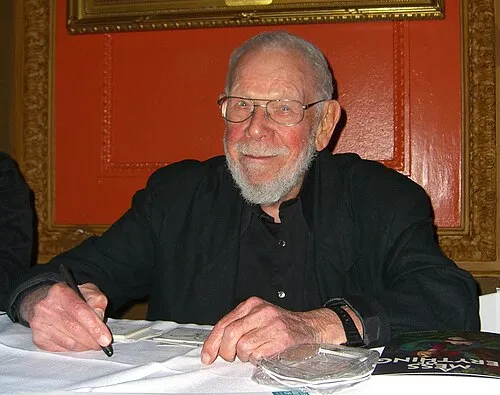In 2023, a tragic mass shooting at Old National Bank in Louisville, Kentucky, resulted in the deaths of five victims and injuries to eight others. This incident highlights the urgent need for discussions on gun violence and public safety in the community.
On April 10
9
Important Days
53
Important Events
341
Births and Deaths
recorded.
Holidays and Occasions
Events
Births and Deaths

Day of the Builder: Celebrating Azerbaijan's Construction Heroes
The Day of the Builder, celebrated on the second Sunday of October, is a significant occasion in Azerbaijan, recognizing the vital contributions of builders and construction workers to the nation's development and infrastructure. This article delves into the history, significance, and celebrations associated with this important day...

Exploring the Feast of the Third Day of the Writing of the Book of the Law in Thelema
The Feast of the Third Day of the Writing of the Book of the Law is a significant event in the Thelemic calendar, marking a crucial moment in the evolution of the spiritual philosophy of Thelema, conceived by Aleister Crowley in the early 20th century. Celebrated on April 8th, it commemorates the completion of the sacred text known as the Book of the Law, dictated to Crowley by his Holy Guardian Angel, Aiwass, during three days of divine revelation in 1904...

Siblings Day: Celebrating the Bond of Brothers and Sisters
Every year on April 10th, people around the globe take a moment to celebrate Siblings Day, an international observance that honors the unique bond shared among brothers and sisters. This day not only emphasizes the importance of sibling relationships but also fosters a sense of appreciation for the shared memories and experiences that shape our lives...

Fulbert of Chartres: A Medieval Scholar and Reformer
Fulbert of Chartres (c. 952 - 1028) was a prominent scholar, theologian, and reformer in the early medieval period...

Exploring the Characters of James, Azadanus, and Abdicius in Fantasy Literature
In the realm of fantasy and mythology, characters often reflect the complexities of human nature, embodying both virtues and vices. Among such captivating personalities are James, Azadanus, and Abdicius...

Mikael Agricola: The Father of Finnish Literature and Lutheran Reform
Mikael Agricola (1510-1557) is celebrated as the "Father of Finnish Literature" and a pivotal figure in the Lutheran Reformation in Finland. He played a crucial role in translating the Bible into Finnish, making religious texts accessible to the Finnish-speaking population and shaping the cultural and literary landscape of Finland...

Pierre Teilhard de Chardin: Bridging Science and Faith in the Episcopal Church
Pierre Teilhard de Chardin was a French philosopher, paleontologist, and Jesuit priest whose ideas have profoundly influenced theology and spiritual thought, particularly within the context of the Episcopal Church. Born on May 1, 1881, in Sarcenat, France, Teilhard's groundbreaking work sought to harmonize science and faith, advocating for a worldview where evolution is a dynamic and divine process...

William of Ockham: The Philosopher Behind Anglican Thought
William of Ockham, a prominent theologian and philosopher of the 14th century, is best known for his role in the development of nominalism and his significant influence on Anglican thought. Often cited as one of the foundational figures in the realm of Western philosophy, Ockham's principles continue to resonate within Anglicanism today...

William Law: The Influential Anglican Theologian
William Law (1686-1761) was a prominent Anglican theologian and spiritual writer whose works have continued to resonate within Christian thought. Born in King's Cliffe, Northamptonshire, England, he became known for his profound insights into Christian spirituality and the nature of true devotion...































